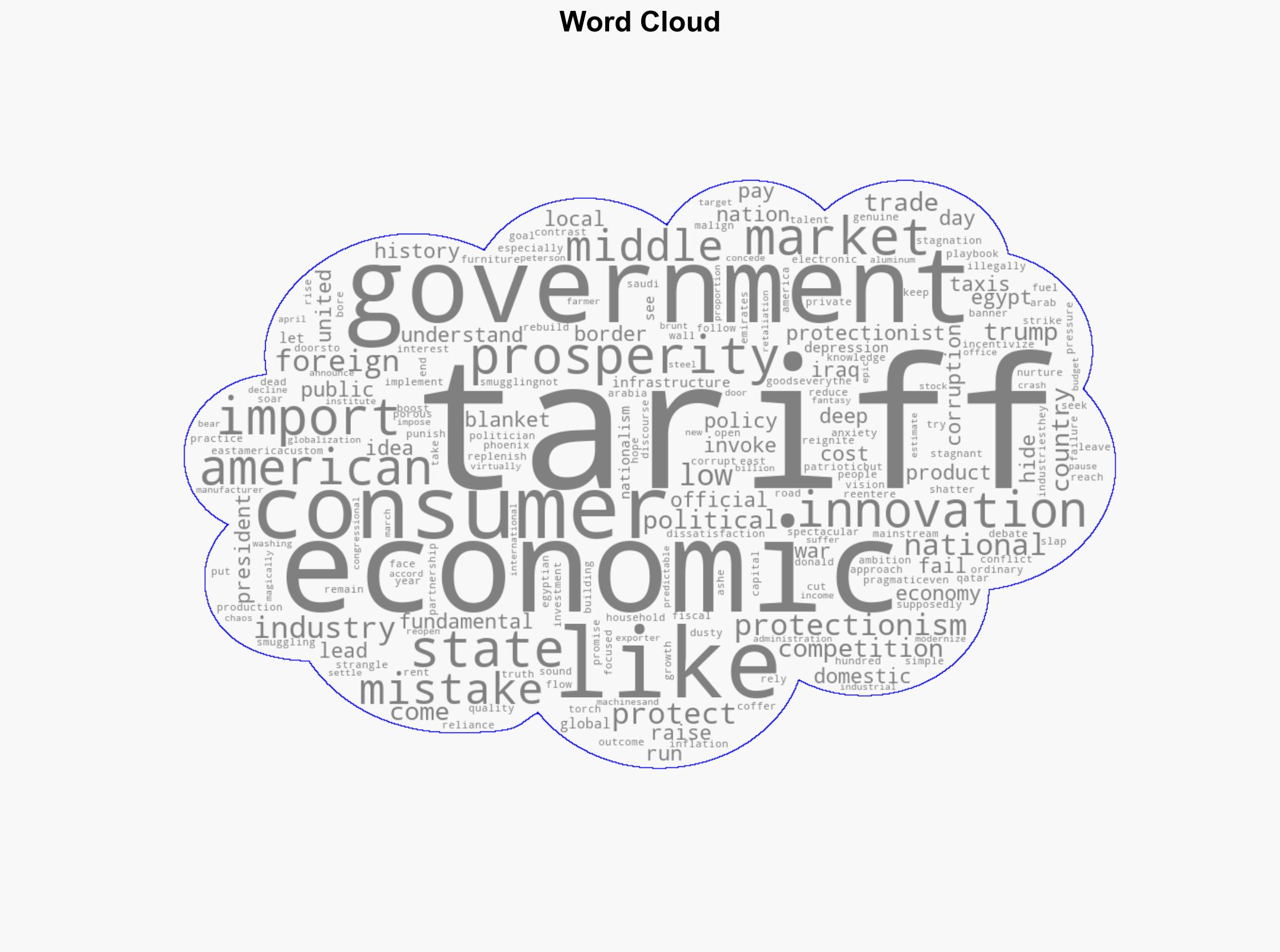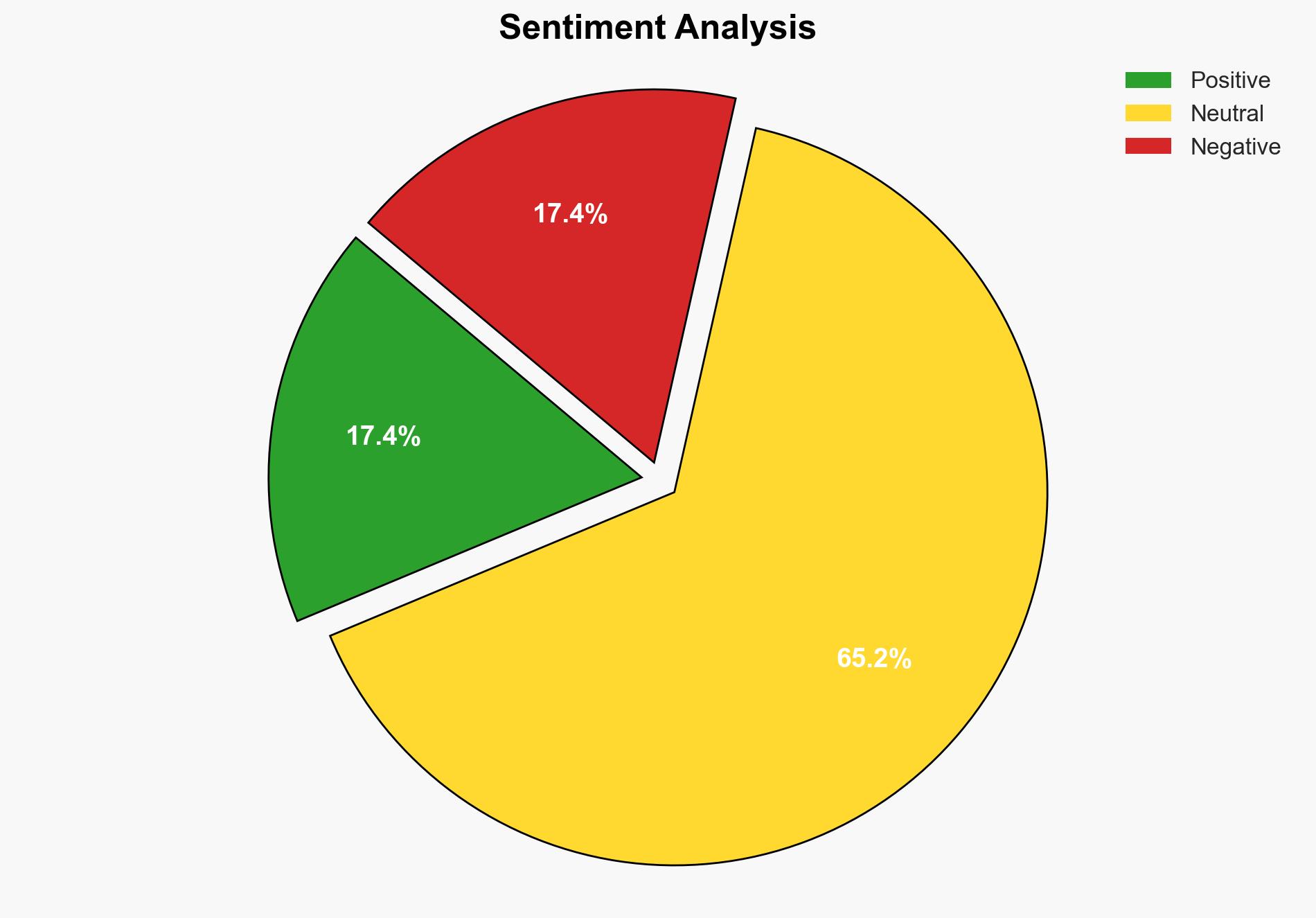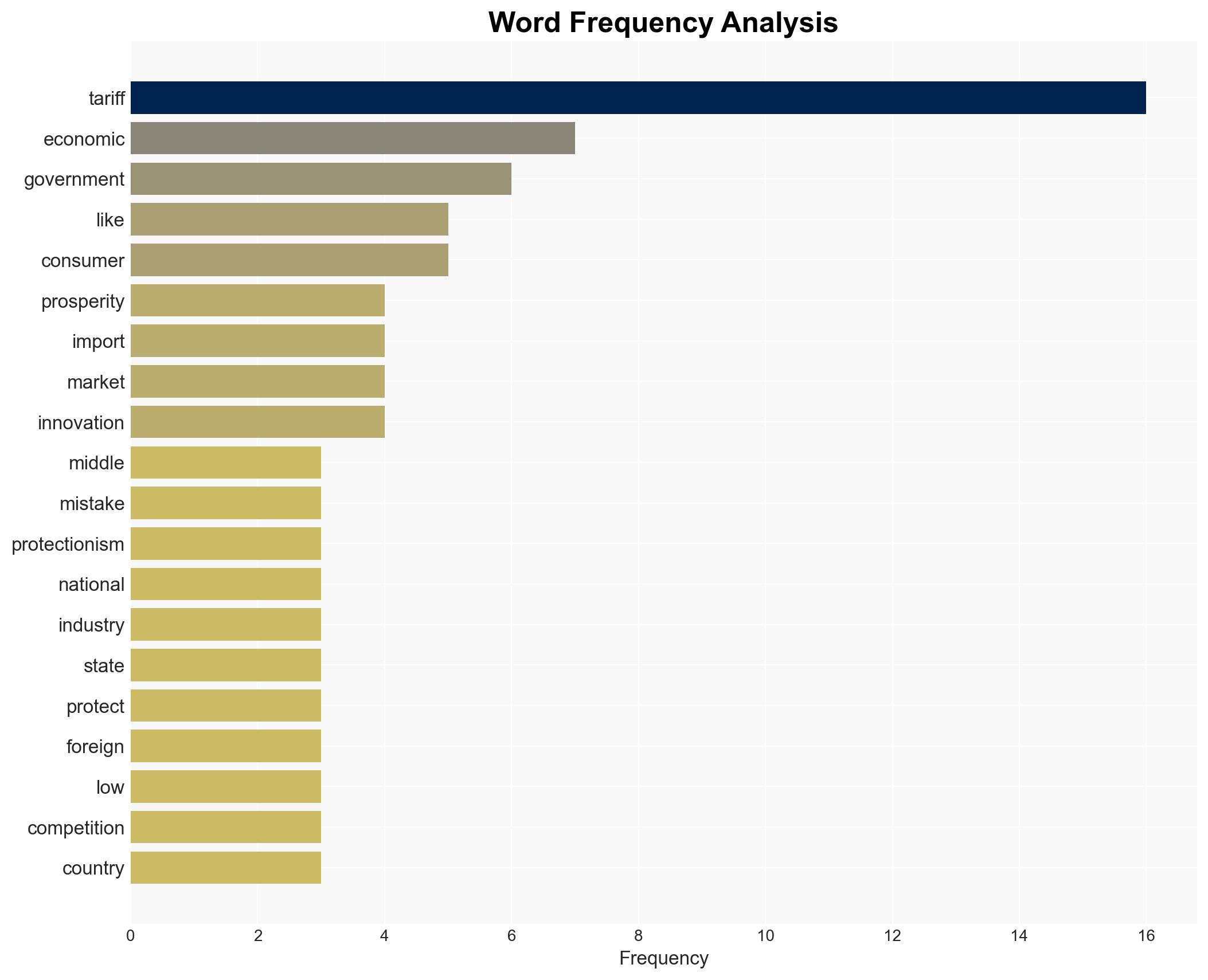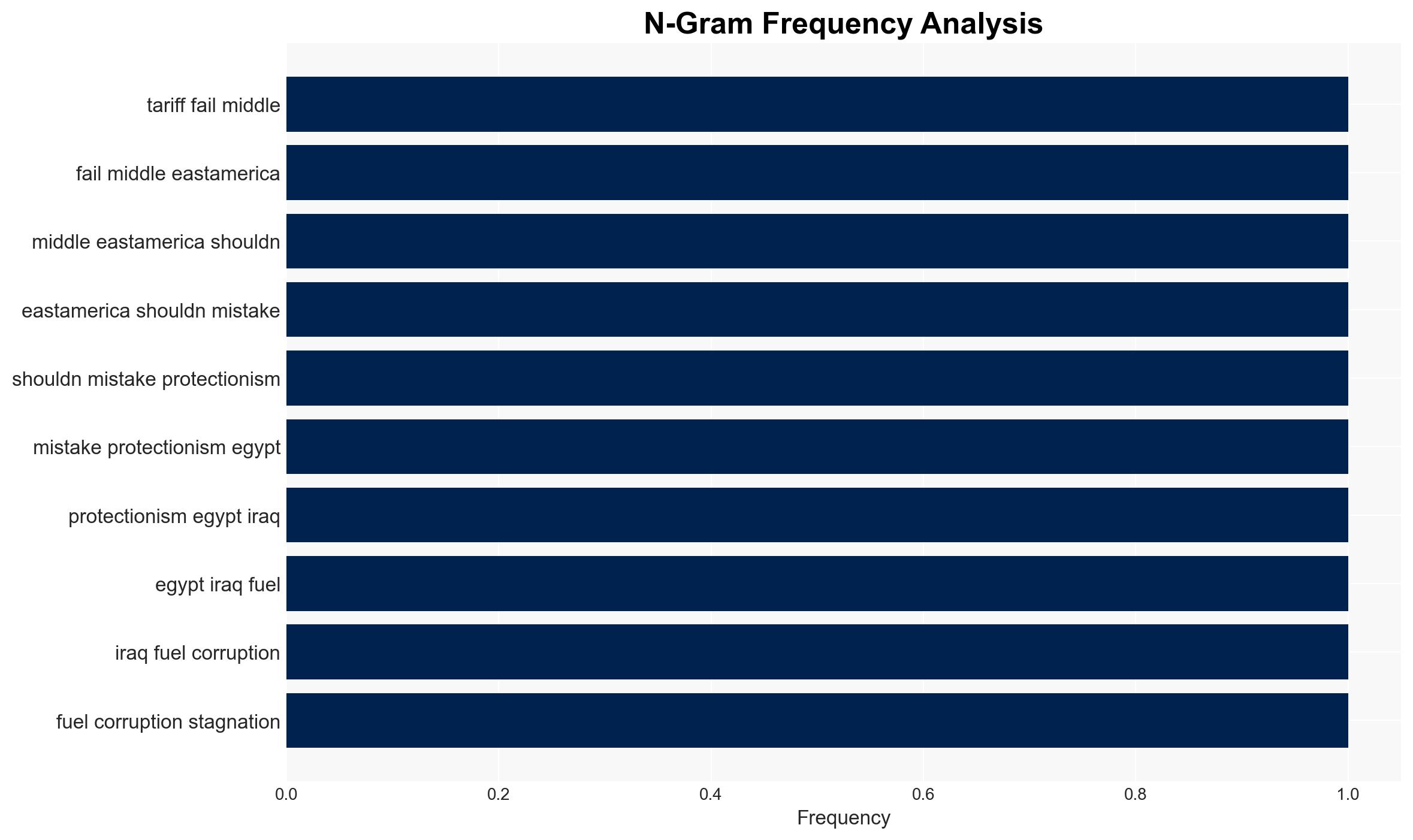Tariffs Failed in the Middle EastAmerica Shouldn’t Make the Same Mistake – Reason
Published on: 2025-04-10
Intelligence Report: Tariffs Failed in the Middle East—America Shouldn’t Make the Same Mistake – Reason
1. BLUF (Bottom Line Up Front)
The implementation of tariffs in the Middle East, specifically in Egypt and Iraq, has led to economic stagnation, increased corruption, and consumer burden without achieving the intended protection of domestic industries. The United States is advised against adopting similar protectionist measures, as they are likely to result in comparable negative outcomes. Instead, fostering open markets and innovation should be prioritized to ensure sustainable economic growth.
2. Detailed Analysis
The following structured analytic techniques have been applied for this analysis:
General Analysis
In Egypt, the 2016 tariff increase on imported goods aimed to protect local industries but resulted in inflation and stagnation. The lack of competition stifled innovation, and consumers faced higher prices for lower-quality products. In Iraq, tariffs intended to boost national production led to increased smuggling and corruption, with no significant economic growth. In contrast, countries like the United Arab Emirates and Qatar have maintained low tariffs, focusing on building knowledge economies and attracting foreign investment. The U.S. experience under Donald Trump’s administration, with tariffs on steel, aluminum, and other goods, resulted in retaliatory measures from other countries, impacting U.S. farmers and exporters.
3. Implications and Strategic Risks
The continuation or adoption of protectionist policies poses significant risks, including economic stagnation, increased corruption, and consumer hardship. These measures can destabilize regional economies and strain international trade relations. The U.S. must consider the potential for retaliatory actions from trade partners, which could harm national economic interests and exacerbate industrial decline.
4. Recommendations and Outlook
Recommendations:
- Encourage open trade policies and reduce reliance on tariffs to stimulate economic growth and innovation.
- Promote public-private partnerships and foreign investment to enhance industrial competitiveness.
- Implement regulatory frameworks to combat corruption and improve border security to reduce smuggling.
Outlook:
Best-case scenario: The U.S. adopts open trade policies, leading to economic growth and strengthened international trade relations.
Worst-case scenario: Continued protectionism results in economic stagnation, increased international tensions, and domestic consumer burden.
Most likely scenario: A balanced approach with selective tariffs and increased focus on innovation and investment yields moderate economic improvements.
5. Key Individuals and Entities
The report references Donald Trump and the Peterson Institute for International Economics as significant entities in the context of U.S. tariff policies and economic analysis.





